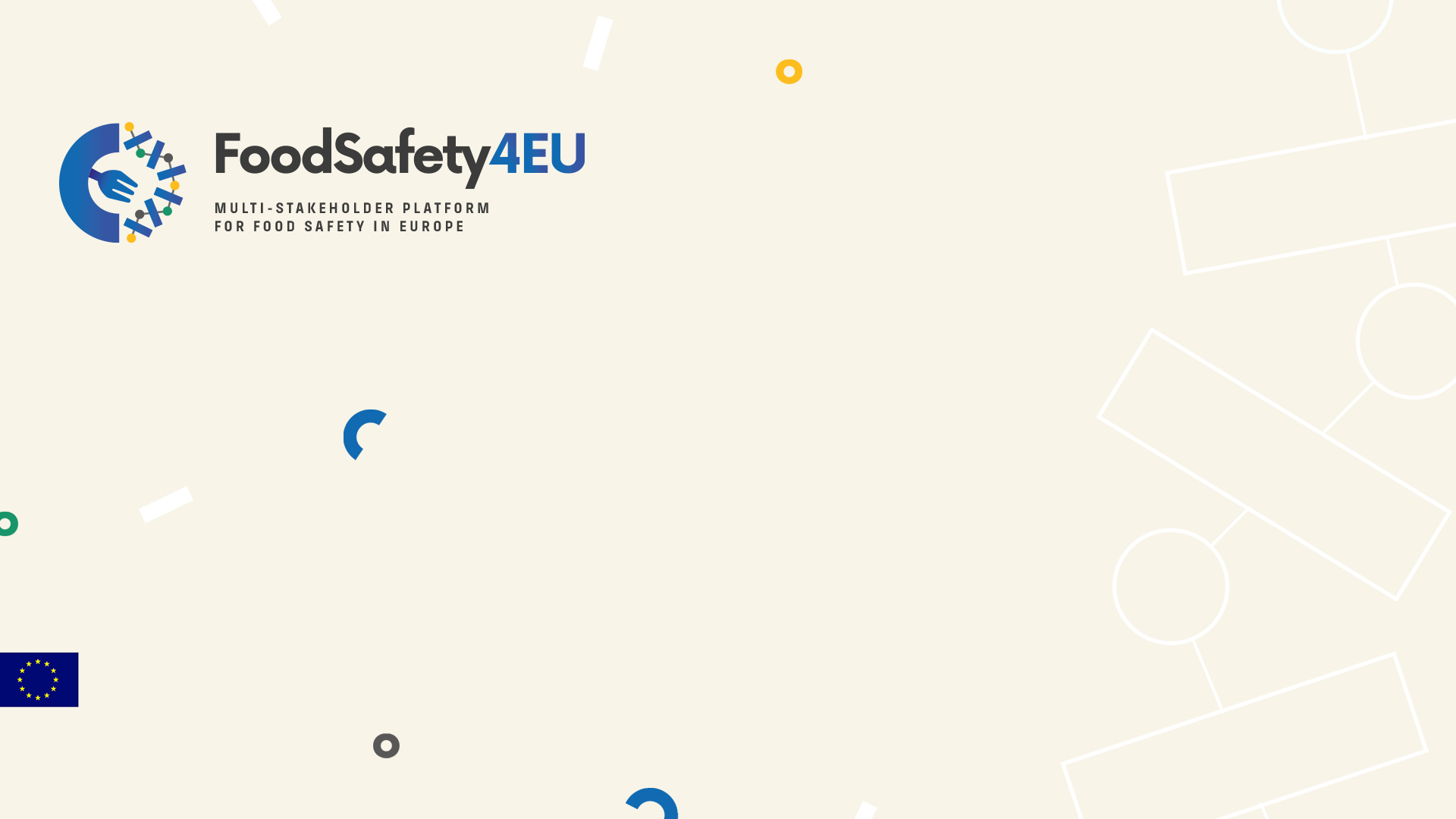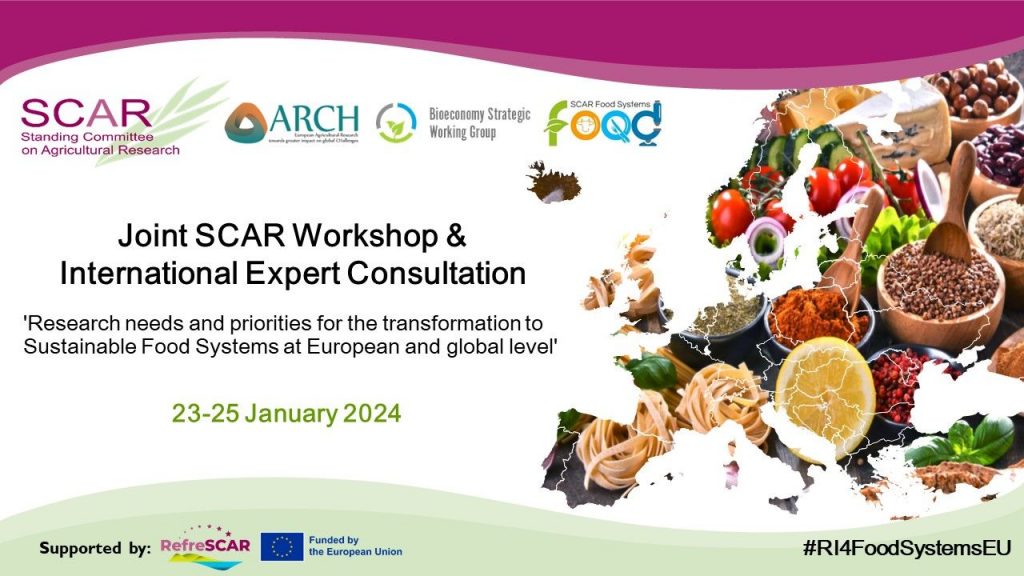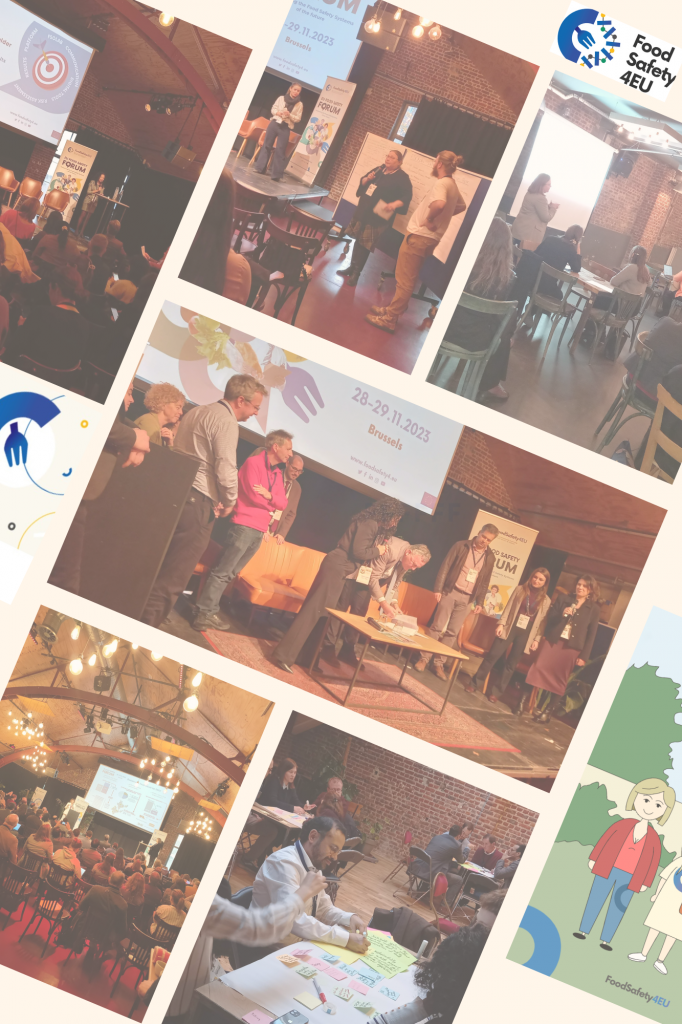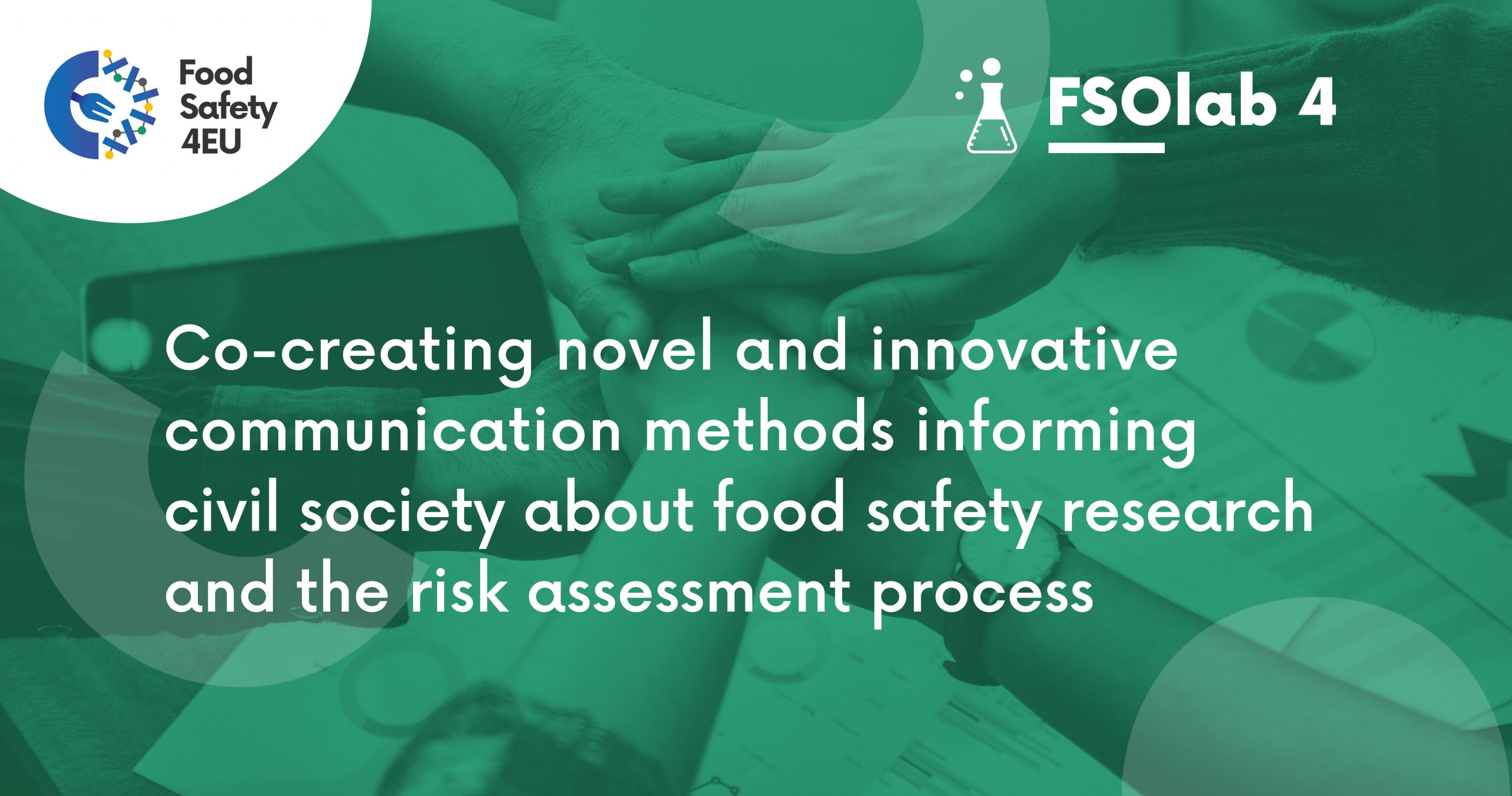
Engagement and Communication for a structured participatory process
Designing and implementing a participatory process to support the Food Safety Systems actors’ engagement throughout Europe is one of the objectives of the EU FOOD SAFETY PLATFORM.
After 3 years of experimenting and piloting new inclusive methodologies for communication and engagement, the EU FOOD SAFETY PLATFORM members are strenghtening their efforts to push broad and multi-stakeholder participation processes in several initiatives, at EU and National levels.
FSOLab 4 concept
In FSOLab4, we co-created innovative and novel communication methods informing civil society about food safety research and the risk assessment process. We did so through participatory workshops with more than 20 lab participants representing food safety actors, the food industry and consumer associations across the EU and Associated Countries.
With the overall aim to engage different actors from the food safety system in the process of identifying, developing, implementing and evaluating innovative and novel pilot communication methods for FSAs communicating the science-based risk assessment process to civil society, for lab participants by engaging in the participatory process, they exchanged observations and viewpoints, being engaged in dialogues, weigh and balance arguments, offered reflections and associations and put facts into a contextual perspective, co-creating a tangible output to be put into practice.
Why FSOLab 4 topic is important?
The topic of risk communication to civil society is essential and a highly relevant topic because foodborne incidents have impacts on public health, causing financial losses at the macro, meso and micro levels of societies. Effective risk communication – which is the exchange of information, advice and opinions between experts and civil society through communication techniques ranging from media and social media communications, mass communications and community engagement – must enable people at risk to take informed decisions to protect themselves and people in their near surroundings. Through stakeholder involvement – represented by FSAs, the food industry and consumer associations – in participatory workshops, we aim at co-creating food safety communication methods that will be implemented in practice and evaluated and eventually benefit civil society, contributing to greater awareness of food safety research and the risk assessment process.
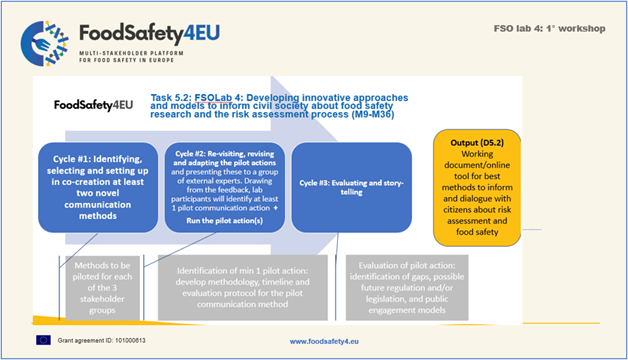
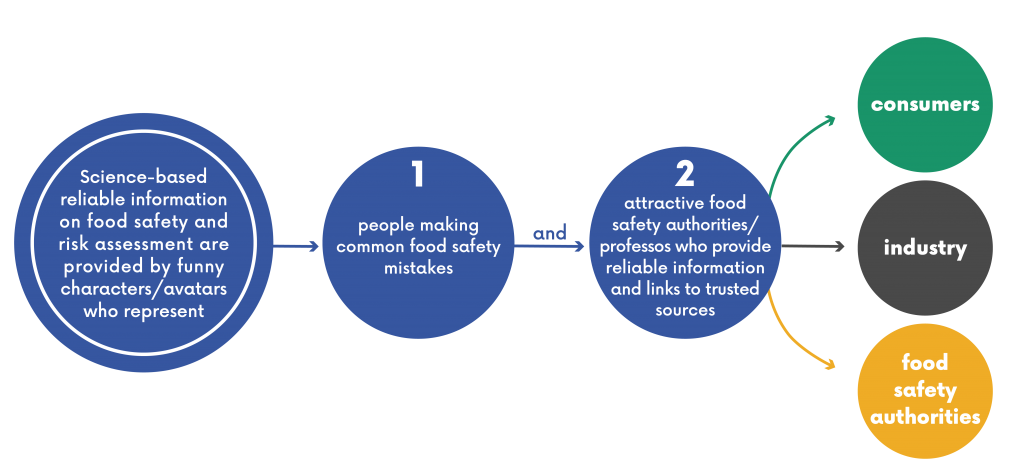
Pilot Actions
The first of three workshops was held online from 14-15 September 2021, involving 21 participants from 11 countries representing food safety authorities, industry/companies, research, civil society, and communication services. At the end of the 2nd day, lab participants agreed on 1 pilot idea:
Science-based, reliable information on food safety and risk assessment are provided by funny characters/avatars who represent:
i) people making common food safety mistakes, and
ii) attractive food safety authorities/professors who provide reliable information and links to trusted sources.
Within three dedicated sub-groups corresponding to three stakeholder groups, Food Safety Authorities (FSAs), Industry and Consumers, in prototyping sessions, lab participants prepared models/sketches and visualized these considering the goals, the target groups, resources, which aspects of the visions and of the current reality are addressed. Before the end of day 2, each group was asked to nominate a leader and co-leader and to work on a detailed pilot plan including time structure, target group definition, information and research required, responsibilities and roles, milestones, and next steps.
The pilot action “Food4Future_cz” was successfully run in the Czech Republic, raising youngsters’ awareness about food safety and sustainability for a conscious and considerate approach to the environment. Discover it here!
The campaign was developed by the project partners VSHCT and FFDI who acted as pilot hosts, supported by IFA (Austria), APRE and CNR-ISPA (Italy). The campaign was launched in Czechia in October-November 2022.
FSOLab4 Team

Dr. Line Friis Lindner
Lab Manager
ISEKI-Food Association
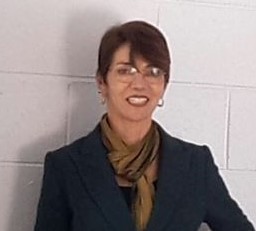
Katherine Flynn
Lab Facilitator
ISEKI-Food Association
FSOLab 4 Next Steps & Updates
Cycle 2 of FSOLab 4 began with the second workshop which held online 8-9 November 2021 after which the pilot action(s) run. Here, you can read more on how we co-created innovative and novel communication methods informing civil society about food safety research and the risk assessment process using the “Social lab method”!



